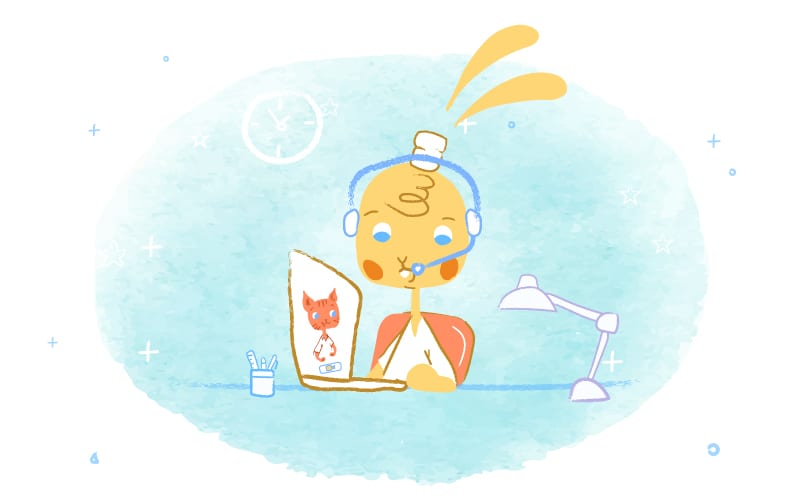

Merriam-Webster’s word of the year for 2023 is one that’s seen an uptick in searches this year. The reason? In today’s digital world, it’s harder than ever to tell what’s real. Which word did they choose for 2023? It’s “authentic.”
Unlike “rizz,” which was also considered for word of the year, “authentic” isn’t a new, trendy word. Despite that, Merriam-Webster reports that in 2023, “authentic” saw a substantial increase in look-ups.
According to the dictionary, stories about artificial intelligence and social media prompted people to look up the word, which means “not false or imitation” and “true to one’s own personality, spirit, or character.”
This year, deepfakes made headlines, and AI tools like ChatGPT became popular for writing college papers to answering emails. So it makes sense that authenticity was on everyone’s mind.
In an era where technology dominates everything we do, being authentic can be challenging, especially when we’re bombarded with messages about who we ‘should’ be, what we ‘must’ desire, and how to express ourselves. Yet, underneath these layers lies our authentic selves, waiting to be uncovered and embraced.
In cultivating your authentic self, you create a life filled with passion, purpose, and deep connections. The key is to shed the layers of conditioning and societal norms that obscure your true essence and embrace your own unique qualities, values, and desires.
Unveiling the Essence of Authenticity
Brené Brown defines authenticity as “the daily practice of letting go of who we think we’re supposed to be and embracing who we are.” Being authentic means letting go of what other people want us to be and operating from a place of authenticity.
An individual’s authenticity is defined as living according to their personal values and beliefs and expressing themselves honestly and openly. Instead of trying to conform to external expectations, it’s about embracing our imperfections, vulnerabilities, and eccentricities.
A person who is authentic is someone who feels at ease in his or her own skin, is confident in his or her individuality, and isn’t afraid to express their true feelings and thoughts. Rather than relying on others’ opinions, they follow their own inner compass.
The Benefits of Cultivating Authenticity
It is essential for our personal and professional lives to cultivate authenticity. This results in:
- Increased self-awareness. We are more aware of our strengths, weaknesses, values, and motivations when in touch with our authentic selves. Self-awareness improves our decisions, helps us navigate life’s challenges, and helps us reach our goals.
- Enhanced self-esteem. In order to feel valued and accepted, you must be authentic. Self-acceptance boosts self-esteem and makes us less vulnerable to external validation when we accept ourselves, flaws and all.
- Strengthened relationships. By being authentic, you can build genuine connections with others. Relationships become deeper and more meaningful when we are open and honest with each other.
- Greater personal fulfillment. We can fulfill our passions, express ourselves creatively, and contribute to the world in ways that align with our values when we live authentically. As a result, you will feel more fulfilled and satisfied in your life.
Furthermore, authenticity can also help you:
- Let go of what others think.
- Get rid of perfectionism.
- Embrace your values.
- Take charge of your life.
- Enjoy a sense of fulfillment and satisfaction.
Embarking on the Journey of Self-Discovery
Being authentic is an ongoing process of discovery and growth; it’s not a one-time event. In order to embark on this transformational journey, follow these steps.
1. Identify your strengths and embrace them.
One of the best ways to tap into our authenticity is to play to our strengths.
What’s the best thing about strengths? Most of the time, using them is easy and fun, and they can deliver the results that you’re looking for. As a result, pay attention to things you’re good at but don’t really love. Using less of these might help you focus on the strengths that you’re best at.
You can also identify your strengths by:
- Ask others. Find out what your friends, family, and coworkers think you’re good at.
- Consider your passions. Think about what you enjoy doing and what you are praised for.
- Be open to feedback. Take the time to listen to what others have to say about you and your work.
- Take a personality test. Learn more about your personality.
- Seek new experiences. For example, be aware of when you are most productive.
2. Overcome limiting beliefs.
It is human nature to hold beliefs about ourselves and the world around us. It is possible for some of these beliefs to empower and support a person, while others may limit them and make them feel weak. Find out what beliefs are keeping you from living an authentic life.
What can you do to challenge these beliefs? Take a closer look at their validity and consider alternative perspectives before making a decision.
3. Be aware of what you’re projecting (and why).
The Haas School of Business recommends that you ask the following to discover or develop authenticity:
- Do you project any mannerisms that feel unnatural to you?
- Do your group’s beliefs influence you?
- Is your work (or any other place) trying to portray a certain identity that doesn’t quite reflect your own?
- Do you participate in something you don’t completely agree with?
- Would it be possible for you to begin to let go of those things that aren’t authentically you?
Understand what truly matters to you (family, autonomy, health, truth, nature, personal growth, kindness, etc.). Think about what you think, not what other people might say.
Also, take a moment to reflect on your values. Do you live according to these values — or are you living against them?
4. Celebrate your uniqueness.
There are a variety of talents, skills, and experiences that make each individual unique. Don’t try to fit into someone else’s mold; embrace your own personal individuality. The quirks and imperfections that make you unique are part of what makes you unique.
5. Embrace your passions.
Is there anything that ignites your soul? Are there any activities that make you feel alive and engaged?
Connecting with your authentic self begins with identifying and pursuing your passions. Spend time on the things that make you happy, whether writing, painting, dancing, or exploring the outdoors.
6. Defend your values.
In order to live authentically, you must act in accordance with your values, no matter how challenging it may be. You should be willing to stand up for what you believe in, even when you will face opposition.
At the end of the day, your integrity will shine through, and you will gain respect for yourself and others.
7. Bring mindfulness into your daily life.
Being mindful means paying attention without judgment to the present moment. You can cultivate authenticity by becoming more aware of your thoughts, feelings, and actions.
Practicing mindfulness through meditation, yoga, or taking mindful walks in nature can be a great place to start.
8. Learn to let go.
Letting go plays a vital role in cultivating your authentic self, according to Dr. Brown’s bestseller The Gifts of Imperfection. She found that outliers react differently to such uncertain situations despite their inhibitions primarily taking over their responses due to the fear of emotional exposure. These outliers are referred to as ‘the wholehearted’, and the way they live is called ‘wholehearted living’.
As she explains in her research, living a wholehearted life means embracing imperfections and living life to its fullest potential without being influenced by other people’s opinions. In order to be your authentic self, you must let go of thought patterns and limiting beliefs that no longer serve you, and accept that what others think of you is none of your business.
9. Establish boundaries that are healthy.
To protect your energy and well-being, it’s important to establish healthy boundaries. For example, you should be able to say “no” when you need to and avoid overcommitting yourself.
Most importantly, don’t allow others to take advantage of you. Instead, prioritize your own needs.
10. Practice self-compassion.
There are three main components of self-compassion: mindfulness, common humanity, and self-kindness. Your mental health can benefit from practicing self-compassion.
The following are some ways to practice self-compassion:
- Loving-kindness meditation. Feel love and kindness for yourself and others.
- Forgive yourself. There is evidence that self-forgiveness can decrease self-condemnation and psychological distress.
- Express gratitude. Rather than focusing on things you lack, consider what you are grateful for.
- Write a letter to yourself. Take the time to write something kind to yourself, as if you were talking to a child.
11. Communicate with your support system.
You deserve to be surrounded by people who support you and value your uniqueness. As you journey towards cultivating your authentic self, these individuals can offer encouragement and guidance. Take advantage of supportive groups or seek coaching or therapist guidance.
In order to be authentic, you must continually grow and discover yourself. Celebrate your progress along the way, regardless of the ups and downs. Your life will be more fulfilling, meaningful, and joyful as you cultivate your authentic self.
12. Be authentic every day.
Being authentic requires patience, time, and dedication. As such, taking small, daily actions aligned with your values can help you build your authenticity muscle.
You can download Brené Brown’s definition of authenticity to learn how to live authentically every day. Are there any daily habits you could adopt to live more authentically?
FAQs
What does it mean to be your authentic self?
Authenticity means living according to your own values, beliefs, and passions and not conforming to external pressures and expectations. The key is to be genuine, honest, and true to yourself, even when it’s complicated.
Why is it important to cultivate your authentic self?
There are several benefits to cultivating your authentic self, including:
- Increased happiness and fulfillment. You’re more likely to experience greater joy, satisfaction, and contentment when you live in alignment with your true self.
- Stronger relationships. As a result of genuineness and openness, authenticity fosters deeper relationships.
- Enhanced self-esteem. The more you embrace your authentic self, the more confident and self-confident you become.
- Greater resilience. The ability to be true to yourself will help you navigate life’s challenges more resiliently and adaptable.
What are some challenges to cultivating authenticity?
To cultivate authenticity, you must overcome the following challenges:
- Fear of judgment. If we are authentic, we may fear what others will think of us.
- Social expectations. Our values may not align with social expectations, but we may feel pressure to conform.
- Self-doubt. It is possible for us to doubt our authenticity and our ability to be true to ourselves.
How can I overcome these challenges?
To cultivate authenticity, follow these tips:
- Remind yourself of the benefits of authenticity. Being authentic makes you more confident, comfortable, and likely to have fulfilling relationships.
- Surround yourself with supportive people. You should surround yourself with people who will appreciate your authenticity and who will encourage you to be true to yourself.
- Practice self-acceptance. Be accepting of yourself, flaws, and all.
- Stand up for yourself. If going against the majority means standing up for your values, don’t be afraid to do so.
Image Credit: Papa Yaw; Pexels











Deanna Ritchie
Editor-in-Chief at Calendar. Former Editor-in-Chief and writer at Startup Grind. Freelance editor at Entrepreneur.com. Deanna loves to help build startups, and guide them to discover the business value of their online content and social media marketing.